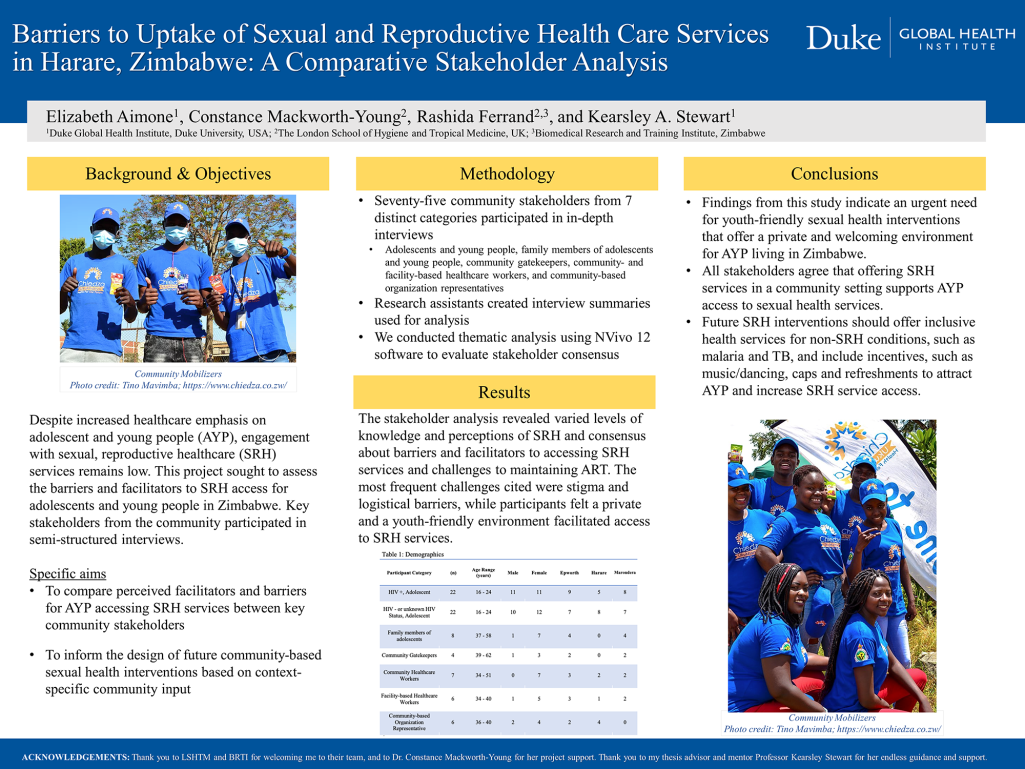Barriers to Uptake of Sexual and Reproductive Health Care Services in Harare, Zimbabwe: A Comparative Stakeholder Analysis

Project member(s):
-
Team lead: Elizabeth Aimone
Dr. Constance-Mackworth Young
Faculty mentor:
Community partners:
-
Dr. Rashida Ferrand, The London School of Hygiene and Tropical Medicine
Mutasa Biomedical Research and Training Institute (BRTI)
- Feedback? Contact the team
Barriers to Uptake of Sexual and Reproductive Health Care Services in Harare, Zimbabwe: A Comparative Stakeholder Analysis
Project overview
Background: Adolescents and young people (AYP) living in Zimbabwe face an exceptionally high burden of HIV. Even with increased health intervention focusing on young people, engagement with sexual, reproductive healthcare remains low. AYP need increased attention to achieve the UNAIDS’ 95-95-95 goal for 2030. This study aims to assess the barriers and facilitators to sexual, reproductive healthcare access for adolescents and young people aged 16-24 in three districts in Zimbabwe.
Methods: Seventy-five stakeholders, including AYP living with HIV, AYP with unknown or negative HIV status, family members of AYP, community gatekeepers, community- and facility-based healthcare workers, and community-based organization representatives contributed to in-depth interviews. We conducted thematic analysis on the interview summaries to assess knowledge and perceptions of sexual, reproductive health (SRH), barriers and facilitators to accessing SRH services, and challenges maintaining ART.
Results: The stakeholder analysis revealed varied levels of knowledge and perceptions of SRH, and consensus about barriers and facilitators to accessing SRH services and challenges to maintaining ART. The most frequent challenges mentioned included stigma and logistical barriers, while the most frequent facilitators included a private and a youth-friendly environment.
Conclusions: Based on the consensus among all stakeholders, findings from this study indicate an urgent need for youth-friendly sexual health interventions that offer a private and welcoming environment for AYP living in Zimbabwe. Additionally, this study contributes to existing literature supporting community-based sexual, reproductive healthcare interventions. This formative research can inform targeted future interventions addressing sexual, reproductive healthcare access for adolescents and young people in Zimbabwe.
Last updated on June 26, 2023
